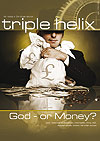Be sure your sins will find you out
Three years is a long time in biotechnology and some may have forgotten South Korean cloning scientist Professor Hwang Woosuk, at the centre of scandals in 2006 when he was found to have falsified research that had been published in Science and to have coerced female employees to 'donate' eggs. In October a district court in South Korea further found him guilty of embezzlement by illegally diverting money from research funding. He was given a two year prison sentence suspended for three years.
(BMJ 2009;339:b4416)
Hubris in research
Interviews with some medical winners of the Nobel Prize confirm how alluring fame in medicine might be. Professor Tim Hunt won with others in 2001 for discovering key regulators of the stem cell cycle, and confesses the confusion of celebrity: 'You are told that you can walk on water but it takes a lot of time to decide what type of water you can walk on. I was even invited to subscribe to declarations of world peace after I won.'
(BMJ Careers 2009; 31 October: GP 137)
Excellence in end of life care
But awards can of course properly encourage pioneers. In Scotland, the new Palliative Care Award is a joint initiative of RCGP Scotland and the Friends of Roxburghe, and 'aims to recognise achievement but also to focus on high standards,
develop quality further and improve the quality of care for all patients at the end of their lives'. The first recipient will be announced next year.
(RCGP News 2009; November: 8)
Talk to NHS colleagues about climate change
3,500 copies of a 56-page handbook Sustaining a Healthy Future – Taking Action on Climate Change have been distributed to NHS managers around the UK. It encourages individuals within the NHS and the health sector generally to 'talk to…colleagues…about the importance of climate change [and] sustainable development'. It is ironic that the NHS forbids its staff from talking about the gospel to colleagues while encouraging them regarding other subjects which perhaps also have an element of belief in them.
(www.fphm.org.uk
Ethics in dementia care
CMF welcomed October's publication by the Nuffield Council on Bioethics of Dementia: ethical issues. They introduce it: 'There is no “miracle cure” just around the corner for dementia…while the number of people suffering from dementia is increasing rapidly… we need to do more as a society to enable people to live well with dementia. Currently, they are not getting the support and respect that they need.' Eutychus particularly appreciated: 'The person with dementia remains the same, equally valued, person throughout the course of their illness, regardless of the extent of the changes in their cognitive and other functions'.
(www.nuffieldbioethics.org
People preferable to pieces of paper
The Nuffield Council strongly endorsed the value of welfare attorneys (lasting powers of attorney) and thought they should be available free: 'We believe that, in supporting and facilitating decision making on behalf of people who are inherently vulnerable as a result of their declining capacity, welfare powers of attorney represent a 'social good' and that, as such, they should, in principle, be available free of charge for everyone'. LPAs might reduce some of the 23,000 cases a year being heard at the new Court of Protection, which has so far taken control of £3.2 billion worth of assets and generated 3,000 complaints.
(www.dailymail.co.uk
Regulating complementary practitioners
The four UK health departments have been consulting on the Report to Ministers from the DH steering group on the statutory regulation of practitioners of acupuncture, herbal medicine, traditional Chinese medicine and other traditional medicine systems practised in the UK. Should such practices be regulated? If so, how?
(www.dh.gov.uk
You put my accent together in my mother's womb?
Adding further wonder to Psalm 139:13-16, new research from Germany suggests babies pick up nuances of their parents' accents while still in the womb. Researchers studied the cries of 60 healthy babies born to families speaking French and German and found French newborns cried with an ascending 'accent' while German babies cried with a falling inflection. The findings suggest that unborn babies are influenced by sounds of the first language to penetrate the womb, and that after birth they seek to bond with their mothers.
(news.bbc.co.uk
'I prayed and pressed'
A highly commended entry in the BMA News writing competition described how an anaesthetist doing a tracheotomy in the ICU got into '...a perfect mess. I then took the only course of action open to me, the thing all good doctors do in situations like this. I prayed. I prayed and pressed and, judging by the bowed heads, I wasn't alone.' He goes on to reflect: 'Prayer has been the subject of randomised controlled trials with some showing an effect and others not. The scientific jury is at best out. My tale is merely anecdotal, the worst level of evidence. Yet that is what we're actually persuaded by; it is what constitutes our own, hard-won experience.'
(BMA News 2009; 12 September: 10)
Thoughts returning to faith
Reviewing the last book of poetry published by the American novelist John Updike before his death this January, consultant physician John Quin describes how in Fine Point, the last poem in the sequence, Updike's '…thoughts return, as they have so centrally in his work, to his faith, quoting Psalm 23:6…Surely – magnificent, that “surely” – goodness and mercy shall follow me all the days of my life'.
(BMJ 2009;339:b2948)































